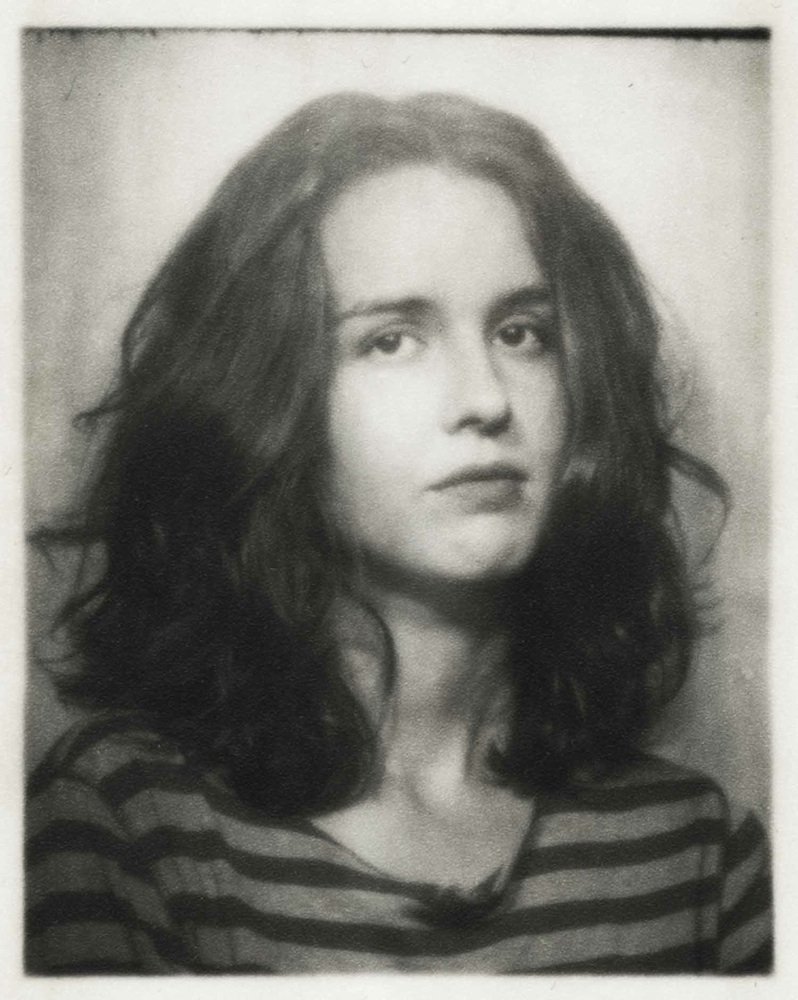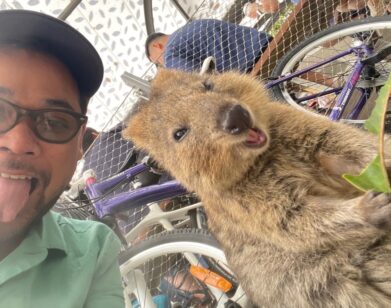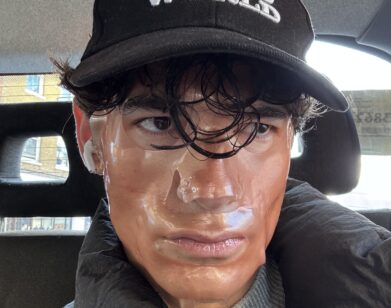Leopoldine Core and the Psychology of the City

ABOVE: LEOPOLDINE CORE.
Out today, Leopoldine Core’s debut short story collection, When Watched (Penguin), is a gorgeous, poetic homage to downtown New York City and the eclectic, yearning characters that populate it.
Tender, melancholy, and bold, Core’s stories are filled with prostitutes, addicts, fathers, friends, and lovers. Against a backdrop of city stoops, fire escapes, and strangers, Core’s characters fantasize about who they might be and whom they might love if they dared. In turns dreamy and dazed, hilarious and sharp, these stories have an undeniable lure, like a jaded city everyone wants to live in.
Through intimate scenes, Core pulls the reader into her character’s relationships with empathy and an irresistible lyricism that makes us feel their doubts, frustrations, and moments of transcendent triumph are our own.
We phoned Core, who was in bed with her two dogs, and talked about what people hide behind appearances, martyrs, joking about unhappiness, hating politeness, unrealized desires, and time.
ROYAL YOUNG: How do people use their appearances as a shield? Or hide behind appearances?
LEOPOLDINE CORE: I think of it almost as the opposite. Something about those characters, they want to protect themselves, but there’s something spilling out of them all the time almost against their will. Like the Kit character, she’s a sensualist but tightly wound. I feel like she has so much to hide but it’s kind of assaulting everyone around her.
What really interested me in that story was this idea of victimhood. Who is a victim? Kit violates her friendship. When you identify as the victim, certain people feel entitled to be violent themselves because they aren’t aware of the power they have to destroy. That story is about the sanctity of friendship. It’s really not worth violating.
YOUNG: Also being taken advantage of. If you feel like you’re being taken advantage of all the time it can make it easier to use that as an excuse to take advantage of other people.
CORE: Right. Because someone feels like a martyr and can’t see what an asshole they’re being [laughs]
YOUNG: [laughs] Totally.
CORE: I also feel like queer characters in fiction or movies or TV, the goal is usually to inspire sympathy or you want people to identify with their humanity and see that they’re people. But that really can be dehumanizing. I always want to show the full landscape of a person’s interiority and all the fucked up secret shit that’s a part of everyone.
YOUNG: That’s a part of being human.
CORE: Yeah. Everyone is their unique cocktail of desire and doubt and moments of action and moments of things that are impossible for them to say.
YOUNG: Something that ran through all the stories for me was this idea of joking about unhappiness.
CORE: Totally.
YOUNG: And how endearing that can be sometimes. [laughs]
CORE: [laughs] Yeah, I almost feel like in my own life I can make jokes about self-hatred or something nightmarish and it makes some people really uncomfortable. And I think, “Oh, you’re not my friend.” You have to joke about it. I think it’s a mark of otherness.
YOUNG: Otherness or self-awareness?
CORE: Both. Also the role of the intellectual outside of institutions. What is the role of the intellectual who is homeless, or an addict or untutored in certain ways? They are scavenging their own truth and being hopefully funny. The book deals with a lot of sadness, depression, and suicidal feelings. I really wanted to punctuate that with energy, laughter, and joy. Being alive feels that way.
YOUNG: You have a line “hating the politeness of life.” I love that. How can politeness be its own kind of inappropriateness?
CORE: Exactly, that’s a good way to put it. We’re all on earth for such a limited amount of time, sometimes in my daily life I feel so disturbed by small talk or politeness or anything that is about smoothing things down and not being uncomfortable. It’s so uncomfortable to me.
YOUNG: Do you feel like there’s a level of dishonesty to it?
CORE: I feel like it’s mechanized fear behavior. It feels really lonely. I’m always courting intimacy with people. It’s what I really want. It’s easier for me to talk to one person rather than a group of people. In this book there’s a lot of pairs of people because that’s been mostly my experience.
YOUNG: So many of your characters struggle with who they are, what is emotionally happening inside them versus what they are allowing themselves to say or reveal. Do you think oblivion is better than consciousness?
CORE: I think they’re actually connected. There’s actual drugs you take to drown yourself and that’s about maybe wanting to dodge certain feelings but there’s also the oblivion that’s inside you all the time. It’s your subconscious and your conscious constantly comingling and if you’re an artist, you have to tap into that or sometimes it’s tapping into you against your will.
YOUNG: What does unrealized desire do to you?
CORE: I think it can manifest in different ways. Mostly people act out, unless they are talking about it or using it in their work because that’s a kind of sex. If you’re just a contained person walking down the street every day pretending, I think it makes people violent. It gives you a tight little smile. It looks like you’re eating shit all the time and no one understands why.
YOUNG: Because you hate yourself so much for everything you’re not admitting.
CORE: Right. Though it’s also really important to want things and not have everything. To be in touch with your longing. Some of that is pleasure causing because it’s the unknown, and I enjoy that. Looking at people and wondering who they could be.
YOUNG: I want to talk about time. This sense of time and aging and death that permeated a lot of the characters and directed their wants.
CORE: I’m pathologically patient as a writer. These stories took a long time. In a way I have this fear of the end. I didn’t want to finish the book because I didn’t want to stop talking to all these characters. That’s weird to live within capitalism but have those feelings. To not want to let go of things. To really enjoy being alone and be in my own time. Our hearts are going to stop beating, things will leave our life. It’s wonderful, but there’s an ache there too.
WHEN WATCHED COMES OUT TODAY, AUGUST 9, 2016.






